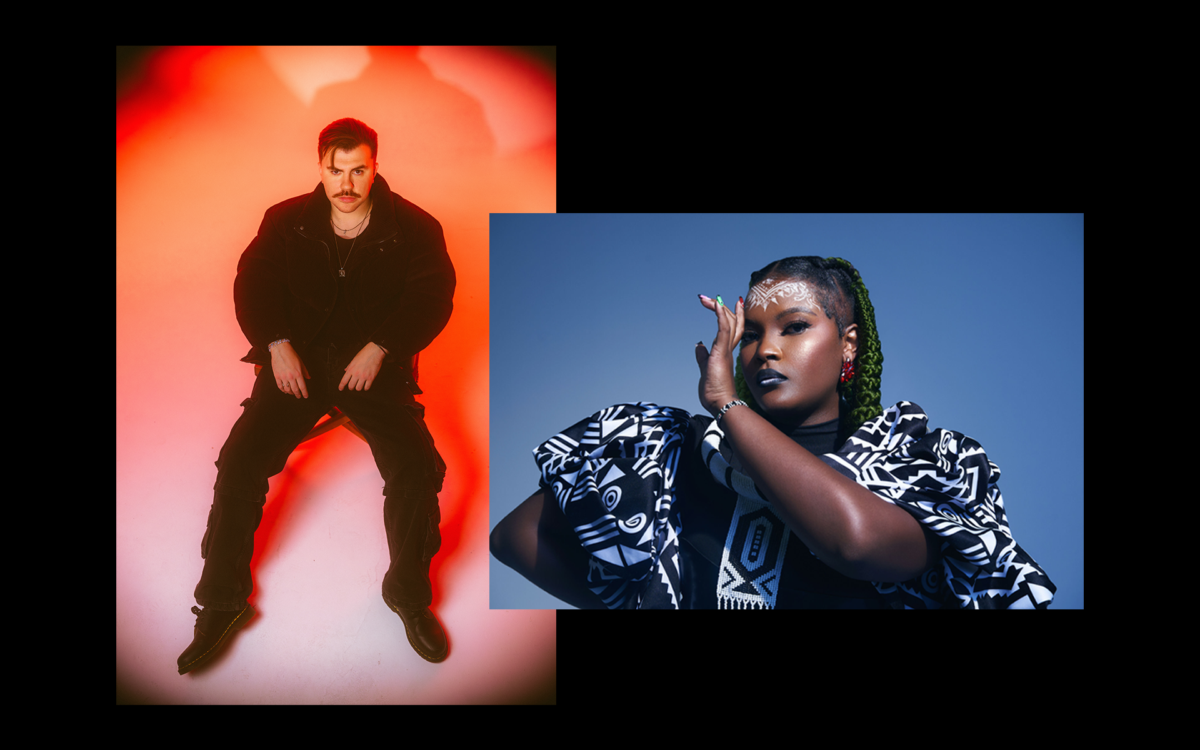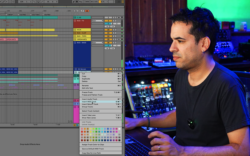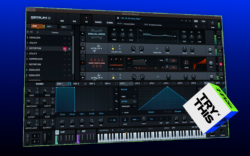With over 200 million streams on Spotify and counting, it wouldn’t be an overstatement to say that “Mwaki” is among the largest releases in electronic music in recent years.
Despite the song’s international success, what many may not know is that the producer behind the track, Zerb, crafted it without ever meeting vocalist Sofiya Nzau in person. We recently had the opportunity to hear from the two creators on their unique collaboration, insights into the production process, and how “Mwaki” has shaped their lives in the year since its release—read on for highlights.
Voice to verse—anywhere. With the addition of Splice Mic, you can instantly test and record ideas, explore genres, and unlock new creative possibilities, all from the Splice mobile app.
It all began with a sample
“I started the song with the instrumental,” Zerb shares as he recalls the beginnings of producing “Mwaki.” “I was playing around with some chords and came up with the main idea. Once I realized I had something special, I wanted to add unique elements. So, I opened Splice and began searching for global samples, from percussion to vocals, and that’s when I discovered Sofiya’s sample pack.”
The sample that Zerb came across was one of countless sounds that Sofiya had created—but that doesn’t mean it was any less significant or devoid of meaning. “It’s hard to recall the precise moment I recorded it, because the sample was among hundreds of other vocals my producer and I were working on for sample packs,” she tells us. “But, I have always loved telling stories from my experiences and those of the people around me, and this was one of them. It is very common for parents to run interference on their children’s relationship, and truthfully, sometimes it’s not for the right reasons.”
However, with the lyrics in Kikuyu, a local Kenyan language, Zerb didn’t immediately recognize this was the theme—so he decided to reach out to Sofiya on Instagram to ask about the sample and show her what he was working on. “It was absolutely breathtaking,” Sofiya says on her experience of hearing the track for the first time. “I loved that he gave life to the song and complemented the vocals perfectly. The results were flawless.”
Meanwhile, the lyrics also turned out to align powerfully with the larger EP that Zerb was working on, which was about exploring the concept of love—it was a true match made in heaven. “The crazy part is that the sample was already in the same key and BPM,” Zerb says. “It felt like it was meant to be.”
“I cannot take all the credit,” Sofiya responds. “I created a vocal that spoke to Zerb enough for him to choose to work with it, and he created a beat that blended with the vocal. This combination brought about the sensational ‘Mwaki’ as we know it to be. I would say, since we were both passionate about music, it is this energy that propelled the song and resonated with the masses.”
Breaking down the drop
One sound in “Mwaki” that’s arguably as iconic as Sofiya’s vocals is the simple but dynamic synth lead, which many creators have attempted to emulate. “I spend many hours a day producing a lot of different stuff, and there are times when I just can’t come up with an idea I like,” Zerb tells us. “But in a lot of those moments, I end up creating synth sounds that I think might work for future projects, so I save the presets.”
“‘Mwaki’ came from one of those saved presets. Typically, my workflow with synths involves browsing through different presets, and then tweaking them to create something new. For ‘Mwaki,’ I used the same Serum preset throughout the entire song, but all the parameters change in different sections and layers, along with different effects.”
Splice also played a role in fueling some other sounds in addition to the track’s vocals. “Other elements that feature Splice samples in ‘Mwaki’ are the drums and percussion,” Zerb tells us. “I don’t think I could live without Splice. It’s my go-to library for all my samples—especially drums and percussion. I use it every day in every track I create.”
The enduring impact of “Mwaki”
While it’s now been a year since its release, Zerb and Sofiya continue to feel the enduring impact of “Mwaki” on their careers. “Since ‘Mwaki,’ I have gotten the opportunity to travel and meet people I had only dreamt of,” Sofiya says. “I have also been blessed to work with some of the biggest people in the industry, and there are still many more projects in the works that I cannot wait to share with the world. A recent collaboration with Robbie Williams and Don Diablo actually started from a sample as well.”
“It completely changed my life,” Zerb adds. “This year, I spent more time outside of Brazil, where I live, than in it. I had the opportunity to work with some of my favorite artists—something I never imagined would happen—and I traveled the world, performing my songs. ‘Mwaki’ opened so many doors for me… I believe I’ve made the best music of my life in the past few months.”
“Mwaki helped us start on our individual journeys, and I am grateful that we were led to each other,” Sofiya reflects. “I hope to create a whole lot more and release more personal and collaborative projects.”
Zerb and Sofiya’s advice to other music creators
Despite its explosive virality and lasting impact, Zerb and Sofiya state that “Mwaki” didn’t feel like an overnight success—and both were working hard at their craft long before its release. As our conversations came to a close, we asked the two if they had any advice for the countless music creators who are still working towards their first big hit.
“My advice is to never give up,” Zerb shares. “I know it’s really hard, but your life can change completely. It took me 12 years of producing music to get to where I am now. Another piece of advice is to create content. I know it can be challenging, but it’s a powerful way to get your music in front of new people.”
“Even though the dream seems so far, don’t stop working towards it,” Sofiya responds. “Make the most of the resources available to you, and with every action you take, you are one step closer to your dream. One day, those many little actions will all add up.”
“I’d also encourage artists to keep putting themselves out there,” she continues. “And if you find something that speaks to you, pour yourself into it, because who knows? You just might be each other’s destiny helpers. We both wanted this so much, and the individual work we put in brought us to this moment. I have never really shared this, but at the time, I was at a point where I was praying for more from my musical journey. And just when I was beginning to question if it would ever come to pass, I woke and someone had found my vocal and poured themselves into it, and together we created something that people loved—and now we are here.”
“I am grateful for the process; it has been quite the journey, and I wouldn’t change a thing.”
Use Splice Mobile to instantly test and record ideas, explore genres, and unlock new creative possibilities—all from your phone:
November 25, 2024

.svg)
.svg)




